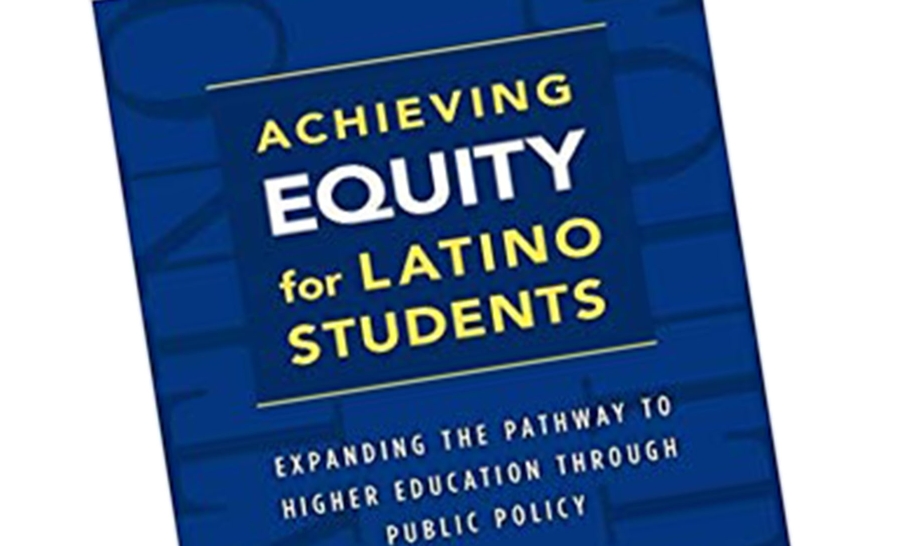Black First-generation College Students Matter: A Call to Action
The Black First-gen Collective, / / February 27, 2020

The Center for First-generation Student Success is publishing Black First-generation College Students Matter: A Call to Action submitted by the The Black First-gen Collective.
Contact information and ways to get involved can be found toward the end of this document.
Background
Fifteen days after its release, Michelle Obama’s memoir, Becoming, became the best-selling book in the United States for 2018. Neither of Obama’s parents were college graduates and Mrs. Obama spends considerable pages in the text describing her experience navigating Princeton University. Several times she refers to herself--with pride-- as a first-generation college student. Prior to the book’s publication, Obama had used her influence and various social media platforms to reach first-generation college students offering her advice and emotional support. One year later, More Than Enough by former Teen Vogue editor Elaine Welteroth, another Black first-generation graduate, debuted on The New York Times best-seller list. Obama and Welteroth together have spoken directly to first-gen students, most recently in May 2019 on National College Signing Day.
Despite the narratives and mainstream popularity of multiple notable first-generation college graduates, such as Obama and Welteroth, and the increased focus on first-generation college students at institutions nationally, there is little scholarship on Black first-generation college students. In fact, as of this writing, we could only find less than ten published articles on this population since 2008.1 In response to the dearth of information and targeted resources, we, the undersigned, call for intentional research and praxis that specifically explores, interrogates, unpacks and disaggregates the unique experiences of Black first-generation college students. For this paper, “Black first-generation college student” refers to an individual who identifies as Black and whose parent/guardian did not obtain a bachelor’s degree in the U.S.
Brief Review of Literature
It is clear that there is a crisis among Black students in higher education. For instance, at the 2019 First-generation Student Success Conference, NASPA President and CEO, Dr. Kevin Kruger referenced data that across institution type, Black students are more likely than their peers to leave college without completing a degree or credential.2 Additionally, Black students, especially Black women, have a greater amount of student loan debt compared to their peers (Hoffower & Akhtar, 2019). We wonder: WHO are these students? Are there differences based upon income level or parents’ level of education? Critical data such as this needs to be disaggregated; after all, Black students are not a monolithic group.
1These include: Field, K. (2019). This Woman Goes Door to Door to Steer Students to College. The Chronicle of Higher Education, Nov. 25; Liversage, L., Naudé L. & A. (2018). Vectors of identity development during the first year: black first-generation students’ reflections, Teaching in Higher Education, 23(1), 63; Owens, D., Lacey, K., Rawls, G., & Holbert-Quince, J. A. (2011). First-generation African American male college students: Implications for career counselors. The Career Development Quarterly, 58(4), 291-300; Parks-Yancy, R. (2012). Interactions into opportunities: Career management for low-income, first-generation African American college students. Journal of College Student Development, 53(4), 510-523; Wilkins, A.C., (2014). Race, Age, and Identity Transformations in the Transition from High School to College for Black and First-generation White Men, Sociology of Education,87(3), 171-187, Jul.
2Espinosa, Lorelle L. Jonathan M. Turk, Morgan Taylor and Hollie M. Chessman, 2015, Race and Ethnicity in Higher Education: A Status Report, Washington, DC: American Council on Education.
Black first-generation college students likely arrive at university campuses uninformed about their first-generation college status given that it is an invisible identity, one that typically is not addressed outside of a university context.3 It is incumbent upon researchers, university administrators and professional staff to inform themselves and their students why identifying as Black and a first-generation college student matters. Educating college and university faculty, staff, and administrators about the academic, cultural, and social experiences of Black first-generation college students introduces them to the strengths and needs of these intersecting identities (Wiggins, 2011). Faculty and administrators must use effective educational practices that seek to foster collaborative environments that allow faculty-student interaction. The creation of new models and approaches for faculty-student interaction can also lead to the improvement of Black first-generation college students’ success, retention, and graduation rates.
Successful Black high school graduates --regardless of parent educational attainment--commonly begin two- or four-year colleges with significant “racial battle fatigue” (Solorzano & Yosso, 2006). Black and Latinx students, for instance, typically are not encouraged to take Advanced Placement courses or to participate in college-prep behavior, such as school clubs and activities (Klopfenstein, 2004; Ohrt et al., 2009); are often tracked into vocational education courses (Greene, 2008); and tend to score lower on standardized tests (Thompson, 2007). Additionally, Black students frequently report feeling invalidated by high school teachers and guidance counselors (Cholewa et al., 2018). Black first-generation college students face compounded challenges because, in addition to experiencing institutionalized racism and microaggressions, they typically do not have access to the hidden curriculum that will allow them to be successful and to thrive in college.4
There is growing and impactful research about Black students in higher education and it is possible that many current studies about Black students may also include first-generation college populations. It is a challenge and a disservice to those populations when that identity is not specifically called out in the literature. An intentional focus on the unique experiences of Black first-generation college students will only bring nuance to existing research and university praxis. Below are identified topics for further consideration:
3The groundbreaking work of William Cross (1991) and Beverly Tatum (1997) detail racial identity development among black adolescents and college-aged adults.
4For a more complete discussion about the importance of hidden curriculum to first-generation college students, see Ardoin, S. (2018). College aspirations and access in working-class, rural communities: The mixed signals, challenges, and new language first-generation students encounter. Lanham, MD: Lexington Books.
Intersecting Identities
Because Black students are not a homogenous group, there are a number of intersecting identities worthy of exploration, including, of course, gender, sexuality and social class. Additionally, it is presumed that Black students live or attend schools in primarily urban areas; and it is critical to consider rural and suburban experiences. And finally, there are critical differences among immigrant versus U.S. born Black students that should be identified.
Student Loan Debt and Financial Literacy
2019 data reveal that the student debt crisis across the nation disproportionately impacts Black students, and women, especially (American Association of University Women, 2018; Kakar et al., 2019). Rarely is this data disaggregated for first-generation college status. Further, reports about student social mobility and student financial literacy should account for historical racism, as well as first-generation college status and the hidden curriculum of higher education.
Family Engagement
What are the unique cultural parenting practices that impact this population and their academic goals? It is also important to recognize that Black families often include extended relations (like grandparents and aunts/uncles) and fictive kin or non-blood relatives; therefore, research studies and university practices should reflect these dynamics (Chatters et al., 1994; Latunde, 2018; Jiang et al., 2019). Additionally, it is critical to study how first-generation college students navigate tensions about their college-going and any duality they may experience with their communities of origin. Further, Black youth tend to be overrepresented in the foster care system--how do first-generation students who are former foster youth fare in college and beyond (Miller et al., 2014; Miller & Esenstad, 2015)?
Institutional Support/On-campus Stakeholders
Historically Black Colleges and Universities (HBCUs) traditionally have been a major source of support for the Black community and yet very few offer targeted programs and resources specifically for first-generation college students. How do these institutions support that population? How do Black faculty and staff--regardless of institution type--influence and support first-generation college students? Additionally, there is much insight to be gained from research on student-athletes and Black first-generation college students who join fraternities and sororities (both College Panhellenic Council and National Pan-Hellenic Council).
Mental Health and Wellness
Recent studies show that Black students face a hidden mental health crisis, and that these students draw upon grit and tenacity to persevere in school; however, they also are less likely than their peers to seek institutionalized support (McGee & Stovall, 2015). What are the further implications for the mental health and well-being of Black first-generation college students?
High-impact Learning Access
It is well-documented that students of color and low-income students are less likely to engage in High Impact Practices (HIPs), such as study abroad opportunities and fellowships; internships; and service-learning opportunities (Finley & McNair, 2013; Whitley et al., 2018).5 A specific focus on Black first-generation college students would enrich this data.
Social Media and Technology
Finally, there is no existing research on the impact of social media and digital technology with regard to Black first-generation college students (Rowan-Kenyon et al., 2018). This focus is critical given the increasing visibility of social media platforms whose founders and managers identify as Black and first-generation college, including but not limited to: The First-Gen Lounge, First Gen & Juice, FirstGenCollege, and First Gen Docs.
Ironically, Black first-generation college students are hypervisible in the media and popular culture and yet are underrepresented at colleges nationally and also in research. In fact, Black students are often overlooked in our data as we seek to identify critical masses of students who are deemed as “underserved.” An intentional focus on the unique experiences of first-generation college students would only deepen existing scholarship and university practices.
5According to the report, First-generation Student Success: A Landscape Analysis of Programs and Services at Four-year Institutions, states HIPs have become widely accepted practice in higher education; however, more targeted services are needed in order for them to be effective. For instance, when it comes to targeted support for first-generation college students, more thought needs to be put into the selection of a HIP, strategic partnerships, and their implementation on campus.
A Call to Action
We invite scholars, practitioners and any stakeholder who is invested in the success of Black first-generation college students to join the movement!
- Are you studying Black first-generation college students or have a program that serves this population? Tell us about your great work in this survey.
- Join the “Empowering First Generation College Students” Facebook group and network with professionals and faculty nationally.
- Meet us in person at the NASPA First-generation Student Success Conference in Baltimore, MD, June 29-July 1, 2020. Details TBD.
- Keep the conversation going on social media platforms, using these hashtags #BlackFirstGen, #BlackFirstGenForward or email us [email protected].
Submitted by The Black First-gen Collective:

Danette Buie, Ed.D., Lyft

Althea Counts, University of South Carolina

Evingerlean D. B. Hudson, Ph.D., The First-Gen Lounge

Nataria T. Joseph, Ph.D., Pepperdine University

La’Tonya “LT” Rease Miles, Ph.D., Career Launch and First Gen & Juice

V. Kaye Monk-Morgan, Ed.D., Wichita State University

A. Symone Morales, Stanford University

Yolanda Norman, Ed.D., University of Houston, FirstGenCollege Consulting, LLC.

Kelley O’Neal, Texas A&M University

Charmaine Troy, Ph.D., Georgia Tech University

Kimberly Walker, Ph.D., University of South Carolina, Upstate

James K. Winfield, Benedict College
For more information, visit the Black First-gen Collective page.
References
Akhtar, A., & Hoffower, H. (2020, January 22). 9 Startling Facts that Show Just how Hard the Student-debt Crisis is Hurting Black Americans. Business Insider. https://www.businessinsider.com/how-americas-student-debt-crisis-impacts-black-students-2019-7
American Association of University Women (AAUW). (2018). Deeper in Debt: Women and Student Loans. https://www.aauw.org/files/2017/05/ DeeperInDebt_ ExecutiveSummary-nsa.pdf
Ardoin, S. (2018). College Aspirations and access in Working-class, Rural Communities: The Mixed Signals, Challenges, and New Language First-generation Students Encounter. Lexington Books.
Chatter, L.M., Taylor, R.J., & Jayakody, R. (1994). Fictive Kinship Relations in Black Extended Families. Journal of Comparative Family Studies, 25(3), 297-312.
Cholewa, B., Burkhardt, C.K., & Hull, M.F. (2018, February). Are School Counselors Impacting Underrepresented Students’ Thinking About Postsecondary Education? A Nationally Representative Study. Professional School Counseling, 19(1), 144-154.
Cross, W.E. (1991). Shades of Black: Diversity in African-American identity. Temple University Press.
Espinosa, L.L., Turk, J.M., Taylor, M., & Chessman, H.M. (2015). Race and Ethnicity in Higher Education: A Status Report. American Council on Education.
Field, K. (2019). This Woman Goes Door to Door to Steer Students to College. The Chronicle of Higher Education, Nov. 25
Finley, A., McNair, T., & Association of American Colleges and Universities. (2013). Assessing Underserved Students’ Engagement in High-Impact Practices. Association of American Colleges and Universities.
Ganasarajah, S., Siegel, G., & Sickmund, M. (2015). Disproportionality Rates for Children of Color in Foster Care. National Council of Juvenile and Family Court Judges. https://www.ncjfcj.org/wp-content/uploads/2017/09/NCJFCJ-Disproportionality-TAB-2015_0.pdf
Greene, A. D. (2008). High School Vocational Program Tracking: Race-ethnic Variations in Placement and Consequences for Academic and Career Outcomes. Open Access Dissertations.
Jiang, X., Shi, D., Topps, A. K., & Archer, C. M. (2019). From Family Support to Goal-directed Behaviors: Examining the Mediating Role of Cognitive Well-being Factors. Journal of Happiness Studies: An Interdisciplinary Forum on Subjective Well-Being.
Kakar, V., Daniels, G. E., & Petrovska, O. (2019). Does Student Loan Debt Contribute to Racial Wealth Gaps? A Decomposition Analysis. Journal of Consumer Affairs, 53(4), 1920–1947.
Klopfenstein, K. (2004). Advanced Placement: Do Minorities have Equal Opportunity? Economics of Education Review, 23(2), 115-131.
Latunde, Y. C. (2018). Expanding their Opportunities to Engage: A Case of the African American Parent Council. Journal of Negro Education, 87(3), 270–284.
Liversage, L., Naudé, L., & Botha, A. (2018). Vectors of Identity Development During the First Year: Black First-generation Students’ Reflections. Teaching in Higher Education, 23(1), 63–83.
McGee, E.O., & Stovall, D. (2015). Reimagining Critical Race Theory in Education: Mental health, Dealing, and the Pathway to Liberatory Praxis. Educational Theory, 65(5), 491-511.
Miller, O., & Esenstad, A. (2015). Strategies to Reduce Racially Disparate Outcomes in Child Welfare: A National Scan. Center for the Study of Social Policy. https://files.eric.ed.gov/fulltext/ED561817.pdf
Miller, O., Farrow, F., Meltzer, J., & Notkin, S. (2014). Changing course: Improving Outcomes for African American Males Involved with Child Welfare Systems. Center for the Study of Social Policy. https://cssp.org/wp-content/uploads/2018/08/Changing-Course_ Improving-Outcomes-for-African-American-Males-Involved-with-Child-Welfare-Systems.pdf
Obama, M. (2019). Becoming. Simon & Schuster Publishing.
Ohrt, J., Lambie, G.W., & Ieva, K.P. (2019). Supporting Latino and African-American Students in Advanced Placement Courses: A School Counseling program's approach. Professional School Counseling, 13(1), 59-63.
Owens, D., Lacey, K., Rawls, G., & Holbert-Quince, J. A. (2011). First-generation African American Male College Students: Implications for Career Counselors. The Career Development Quarterly, 58(4), 291-300.
Parks-Yancy, R. (2012). Interactions into Opportunities: Career Management for Low-income, First-generation African American College Students. Journal of College Student Development, 53(4), 510-523.
Rowan-Kenyon, H. T., Alemán, A. M., & Savitz-Romer, M. (2018). Technology and Engagement: Making Technology Work for First-generation College Students. Rutgers University Press.
Smith, W.A., Yosso, T.J., & Solorzano, D.G. (2006). Challenging Racial Battle Fatigue on Historically White Campuses: A Critical Race Examination of Race-related Stress. In C. A. Stanley (Ed.), Faculty of color: Teaching in predominantly White colleges and universities. Anker Publishing.
Tatum, B.D. (1997). Why are All the Black Kids Sitting Together in the Cafeteria? And Other Conversations About Race. Basic Books.
Thompson, G.L. (2007). The Truth About Students of Color and Standardized Tests. Leadership, 36(3), 22-26.
Welteroth, E. (2019). More Than Enough. Simon & Schuster Publishing.
Whitley, S.E., Benson, G., & Wesaw, A. (2018). First-generation Student Success: A Landscape Analysis of Programs and Services at Four-year Institutions. Center for First-generation Student Success, NASPA–Student Affairs Administrators in Higher Education, and Entangled Solutions.
Wiggins, J. (2011). Faculty and First-generation College Students: Bridging the Classroom Gap Together. New Directions for Teaching and Learning, 10(1), 1-4.
Wilkins, A.C., (2014). Race, Age, and Identity Transformations in the Transition from High School to College for Black and First-generation White Men, Sociology of Education, 87(3), 171-187, Jul.





